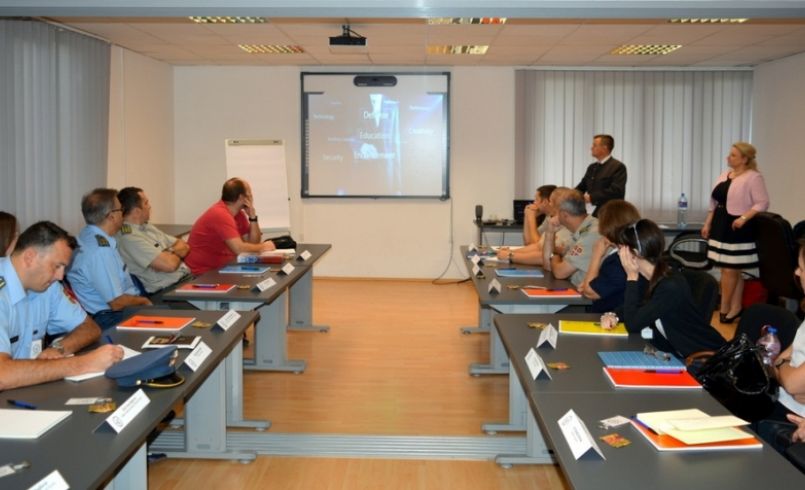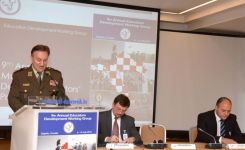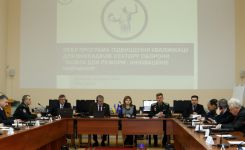- Partnership for Peace Consortium of Defense Aca...
- Defense Education Enhancement Program introduci...
Defense Education Enhancement Program introducing online learning technologies in Serbia
Belgrade, Serbia (September 24, 2015) – From 22 to 24 September, Defense Education Enhancement Program (DEEP) experts began a cooperative initiative with the Serbian Ministry of Defense to introduce online learning technologies into Serbian defense education institutions.
Defense education reform is an important part of Serbia’s Individual Partnership Action Plan (IPAP), a roadmap that guides Serbia’s cooperative activities with NATO. The DEEP program in Serbia, launched in 2014, is an important enabler for the defense education component of Serbia’s IPAP.
Kicking off the new initiative, DEEP experts organized a workshop with Serbian defense education representatives at the National Defense University in Belgrade to evaluate over 10 emerging learning technologies, which fall under four broad areas: 1) Virtual Classrooms – enable distance learning through Learning Management Systems (LMS); 2) Immersive Environments - composed of virtual worlds, augmented reality, and virtual reality; 3) Mobile Learning – comprised of web based and offline apps; and 4) Social Learning – include MOOC (Massive Open Online Courseware) and Open Education Resources. The workshop aimed to determine the feasibility of implementing such technologies in Serbian defense education institutions, including the Serbian Military Academy and Defense Institute of Strategic Studies.
John Kane, Director of Operations for the Partnership for Peace Consortium (PfPC) and Program Manager for the PfPC’s Education Development Working Group, said of the new DEEP program in Serbia, “Integrating modern technologies into classroom environments is an essential part of the modern learning experience and we are thrilled that the DEEP program is helping towards this aim.”
Serbian defense education officials are now reviewing the technologies evaluated during the workshop to determine appropriate action plans in respective institutions. Subsequently, the DEEP program in Serbia will continue an ongoing partnership to help usher modern learning technologies into Serbia’s defense education classrooms.
Jointly managed by the Partnership for Peace Consortium and NATO, the DEEP program was initiated in 2007 in response to efforts of former Soviet Union states to transform their defense institutions. To date DEEP programs are underway in 13 countries, each program specifically tailored to a country’s needs: Afghanistan, Armenia, Azerbaijan, Croatia, Georgia, Iraq, Kazakhstan, Mauritania, Moldova, Mongolia, Serbia, Ukraine, and Uzbekistan.
The DEEP workshop was conducted by a team of experts from the NATO School Oberammergau: Mr. Gigi Roman, Lieutenant Commander Remi Tremblay and Ms. Tanja Geiss.



